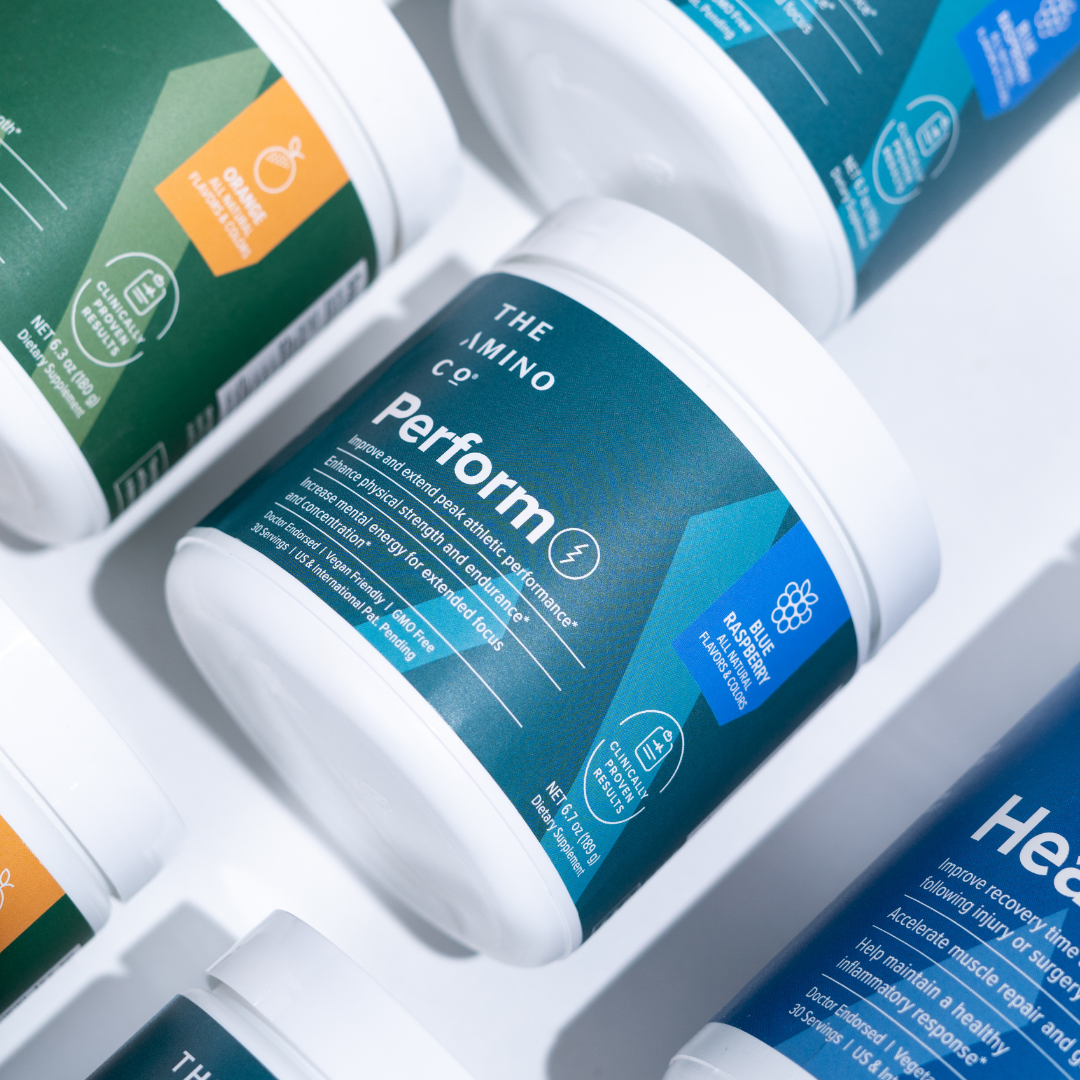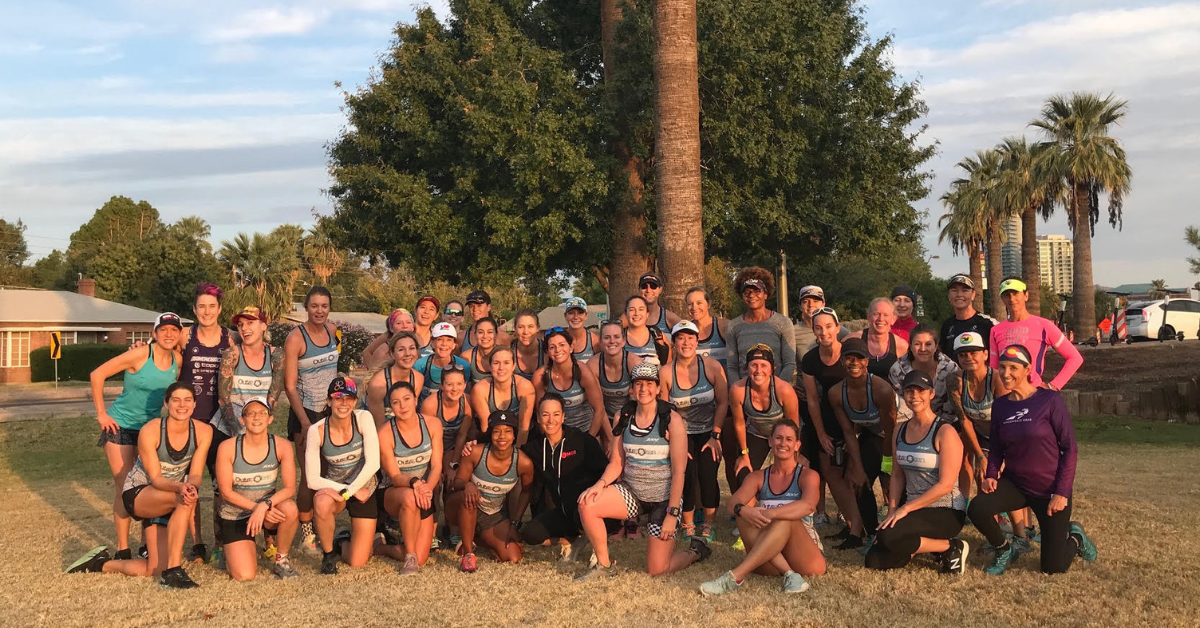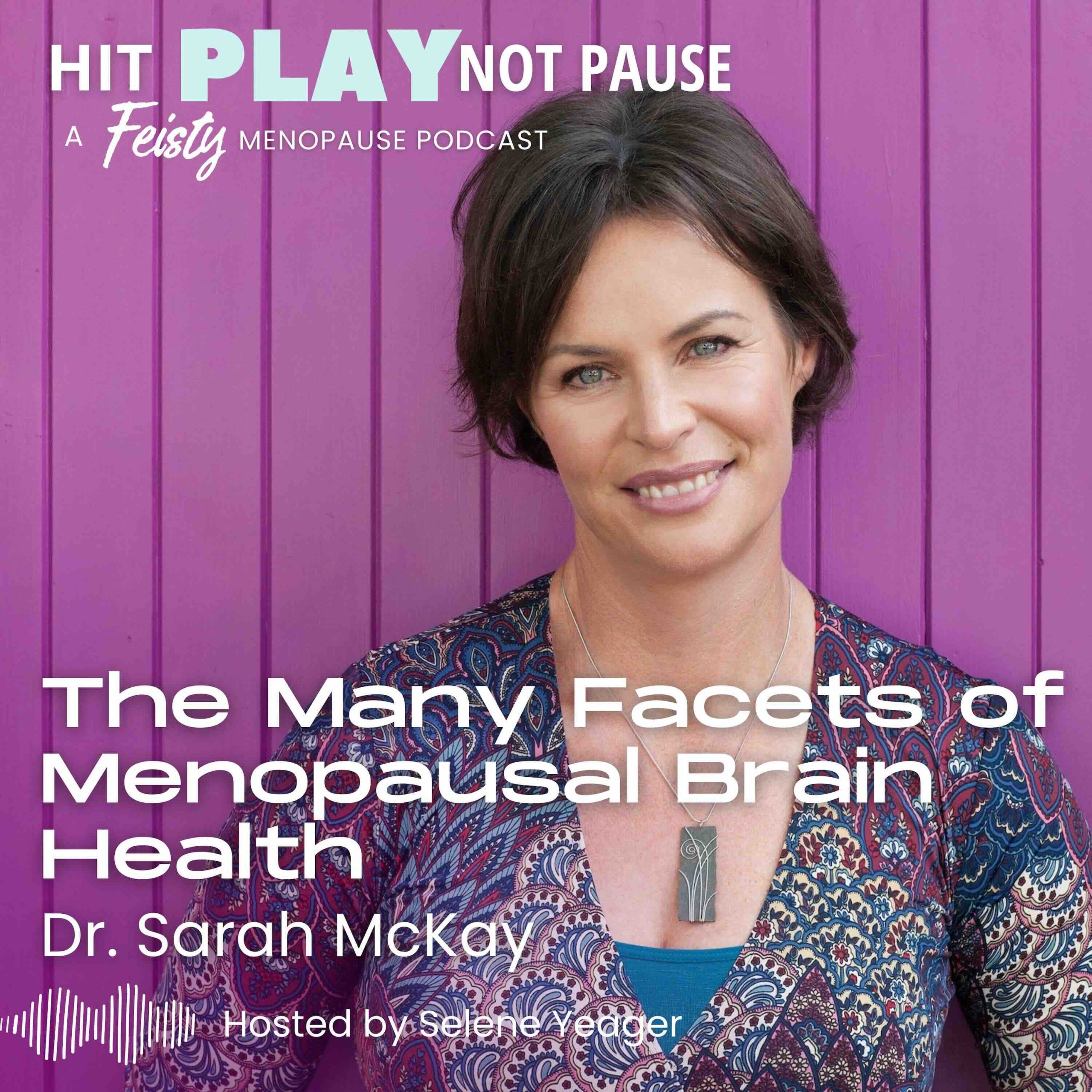May 17, 2023
Supplement Spotlight: Amino Acids

These building blocks can help build muscle, improve performance, enhance recovery, and prevent mental fatigue.
By Selene Yeager
This post is sponsored by our Hit Play Not Pause sponsor Amino Co. All of the scientific evidence presented is the product of my own research and the personal take is very much my own.
We talk a lot about the importance of muscle in our menopause community. As Juliet Starrett said in a recent episode of Hit Play Not Pause, “Muscle mass is like your 401K for menopause” and you need all the muscle you can make because it slips away with age. We also talk a lot about the importance of protein for active and athletic menopausal and midlife women, because after all, without enough protein, we can’t make and maintain that valuable muscle. This brings us to amino acids—the building blocks of protein—and specifically amino acid supplements.
Athletes of all types have used amino acid supplements for decades to help boost muscle and training gains and promote recovery, and now that you have millions of people continuing to train well into midlife and beyond, the demand is not slowing down. The global market for amino acids was valued at $26 billion U.S. in 2021 and is expected to reach nearly $50 billion by 2030. Along with this growing popularity is growing confusion about what amino acids are, what they do, and if and when you should take them. So, let’s break it down.
What are amino acids?
Amino acids are literally one of the building blocks of life, as they are the components that comprise protein, and protein as mentioned earlier, is what makes up our muscles. Amino acids are also involved in the synthesis of hormones, neurotransmitters, and other tissues. Some amino acids can be converted into glucose or other energy substrates to provide fuel for your body during exercise.
There are hundreds of amino acids found in nature, but only about 20 amino acids are needed to make all the proteins found in the human body. Our body can make many, but not all of the amino acids we need. There are nine essential amino acids (EEAs) that the human body can’t make on its own and that we need to get through diet. They are:
- histidine
- isoleucine
- leucine
- lysine
- methionine
- phenylalanine
- threonine
- tryptophan
- valine
Branched-chain amino acids (BCAAs) are a subgroup of EEAs. They have a slightly different molecular structure, which includes a “side chain” of one carbon atom and three hydrogen atoms (hence the name). The BCAAs are valine, leucine, and isoleucine.
BCAAs make up about one-third of the muscle protein in your body and are particularly important for muscle metabolism. Leucine, in particular, promotes muscle protein synthesis (a.k.a. the process by which muscles repair and build). Research reports that even when women eat less total protein, when the protein they eat is relatively high in leucine, it stimulates muscle protein synthesis as well as if they’d eaten more total protein.
The International Society of Sports Nutrition Position Stand: protein and exercise published in the Journal of the International Society of Sports Nutrition recommends aiming for at least 10 to 12 grams of EAAs and 1 to 3 grams of leucine from your protein-rich meals and/or snacks, in addition to a balanced array of essential amino acids. Research suggests that older women may need 3 to 4 grams of leucine per meal for maximal stimulation of muscle protein synthesis.
What are amino acid supplements used for?
Athletes use amino acid supplements to make sure they have enough EAAs in circulation before, during, and after exercise, especially to facilitate muscle growth, limit muscle damage, and speed repair and recovery. For instance, one study found that consuming leucine-enriched essential amino acids during an hour-long cycling bout improved muscle protein synthesis by 33 percent.
Amino acids may also enhance fat burning and boost exercise performance during very long, hard efforts when your glycogen stores are running dry. BCAA supplementation also may reduce the muscle damage associated with endurance exercise. Some research also finds that amino acids, especially BCAAs, can help reduce mental fatigue during prolonged exercise and improve cognitive performance after exercise.
Do I need amino acid supplements if I eat enough protein?
You can get all the amino acids you need from your diet, especially if you get the recommended 20 to 40 g of protein per meal. Supplements help fill the gaps when you’re training a lot and/or finding it challenging to consume enough protein during meals and snacks to support your physical activity.
In those cases, supplementation may be beneficial because it becomes harder to make and maintain muscle postmenopause, and with age, as we experience a reduction in muscle protein synthesis. Research suggests that supplementing with essential amino acids can be beneficial to help older adults hang onto muscle mass. One study on healthy older women found that supplementing with essential amino acids significantly improved lean body mass and muscle protein synthesis.
Personal take: I eat a fairly protein-forward diet, but during hard training blocks, I struggle to stay on top of all my fueling needs. Now that I’m postmenopausal, I also don’t make and maintain muscle as easily as I used to, and recovery can take longer. My head also gets a little more fatigued than it used to during very long training sessions (especially those 3000 to 4000+ meter swims!). I’ve found supplementing with essential amino acids helps with that mental fatigue.
I’ll put essential amino acids in a hydration bottle that I drink on the way to the pool and during my swim. I do the same before and after long runs—I’ll drink half a bottle before the run and finish it up when I’m done. On lifting days, I’ll add them to my bottle to sip on throughout the workout. I notice that it helps with the general fatigue I sometimes feel as I’m shoehorning double sessions into an otherwise busy day, and I feel less sore and bounce back more quickly on a day-to-day basis when I’m using them. I used to use them during mountain bike stage races for this reason, as well.
As with many supplements, I use essential amino acids as just that—a supplement to fill the gaps and make sure I have the nutritional support I need when I’m training hard and it’s not easy to consume enough protein in my diet before, during, and afterward. I’ll note that the amino acid supplement I use, Perform from our sponsor Amino Co, also has a hit of 60 grams of caffeine per serving (the amount in 8 oz of instant coffee), which also helps improve endurance, peak power, and cognitive performance during events and hard training sessions.
If you choose to try amino acid supplements, The Amino Co is a sponsor. You can get 30% off with the code HITPLAY and receive a free gift for new purchasers at https://aminoco.com/hitplay.


 Outspoken Women in Triathlon Summit Returns Bigger than Ever
Outspoken Women in Triathlon Summit Returns Bigger than Ever  Driving the Lamborghini: Productivity and the Power of Paper
Driving the Lamborghini: Productivity and the Power of Paper  5 take aways from the Compete Sports Diversity Summit
5 take aways from the Compete Sports Diversity Summit  Simple Tips to Hone Your Bike Handling Skills
Simple Tips to Hone Your Bike Handling Skills 

